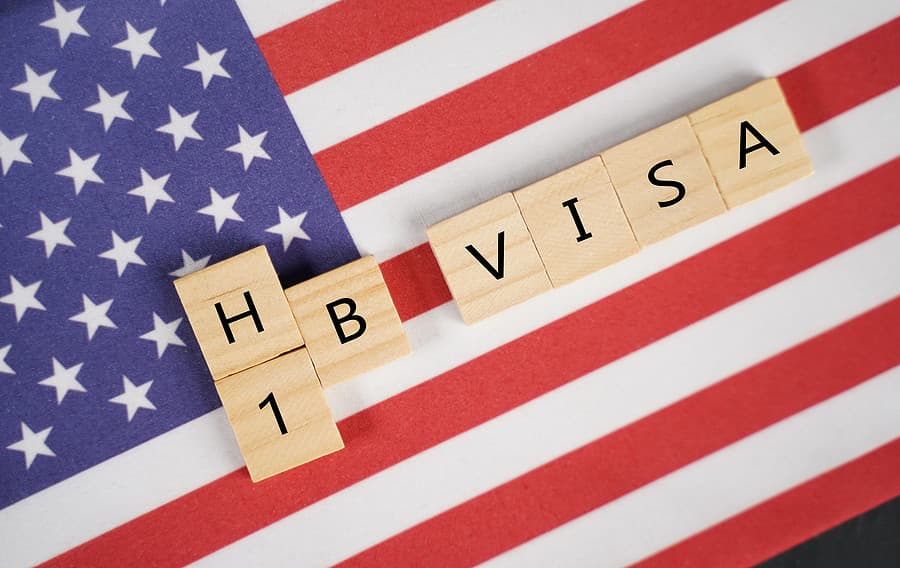On Jan. 8, the outgoing Trump administration ruled to overhaul the H-1B visa program in favor of a wage-based system that gives priority to higher wages and skills for the selection of candidates.
Previously operating as a lottery-based system, the H-1B visa program awards temporary non-immigrant working visas to highly educated foreign professionals, many of whom are most likely to work in STEM-related positions. This rule was a part of a series of changes imposed by the Trump administration, including the extended ban on the entry of non-immigrant visa holders into the U.S. through March 2021.
While the U.S. State Department ruled to relax a few of these restrictions — allowing H-1B and L-1 visa holders to return to the U.S. for continued employment with the same employer — the recently passed wage restrictions continue to heighten challenges for specialty occupation workers and U.S. companies petitioning for their work permits. While the approval rate for H-1B visas was at 87.1% in Q2 2020, under the recent changes, the likelihood of Level 1 and Level 2 wage-based applicants being selected to fill in-demand roles severely diminishes.
Each year, the H-1B program grants a total of 65,000 visas to specialized workers with bachelor degrees or an equivalent, and an additional 20,000 visas for foreign professionals holding a master’s degree or doctorate from a U.S. institution. The program will now give priority selection to applicants whose proffered wage equals or exceeds the prevailing level in that area of employment, selecting petitions in a descending order through the remaining levels, until the cap has been reached.
Under the revised regulations, an entry-level applicant would be guaranteed denial as they would need to be earning a salary equivalent to the 45th percentile of their profession’s salary, which the National Foundation for American Policy finds, does not reflect market wages or meet the definition of a prevailing wage.
Implications for Businesses and Workers
Upon President Biden’s inauguration, the White House Chief of Staff issued a memorandum that has temporarily frozen the wage requirement rule for the next 60 days. The new president has not yet specified his exact policies for altering the H-1B program. However, if the Department of Homeland Security (DHS) agrees to delay this rule until March 21, it may impede the wage requirement rule from impacting the H-1B registration process for fiscal year 2022, beginning April 1, 2021.
With the possibility of the wage-requirement rule remaining in effect for the foreseeable future, many U.S. companies would be facing higher cost of access to foreign labor, and a smaller pool of talent, particularly in areas where the demand for specialized workers outweighs the supply of those who are qualified. This demand is particularly dominant in the technology sector, where workers in “computer-related occupations” accounted for 65% of all H-1B visas in 2019.
When these restrictions were imposed by the Trump Administration, many founders and investors in this sector vocally expressed their opposition. Last summer, several tech giants — including Microsoft, Amazon, and Facebook — filed a brief in favor of a lawsuit against the temporary ban on the entry of non-immigrant visa holders into the U.S., under the notion that visa restrictions will “hurt American businesses.”
The businesses most likely to be impacted by a wage-based visa system are start-ups that often rely on entry-level workers to fill the demand for open roles and do not have the capacity or the bandwidth to compensate their workers with higher salaries. In an attempt to recruit top talent, many business leaders have expressed plans to shift their hiring and growth plans outside of the U.S. market and into hubs that do not require visas. However, companies that decide to pivot to recruiting local residents risk taking on unqualified candidates, which can increase business costs in the long run as unqualified candidates require more investment in training and development and are less likely to remain at a company long-term.
Tightened restrictions for H-1B holders may also have long-term implications for the U.S. economy at-large. Research from Stilt revealed that H-1B visa holders reinvest more than $12 billion into U.S. businesses every year. Every additional H-1B visa awarded to a state has also propelled the creation of 1.83 more jobs for U.S.-born workers in the following seven years, according to a joint study conducted by the Partnership for a New American Economy and the American Enterprise Institute.
Tech’s Appetite for Foreign Talent Remains High
Despite the restrictions imposed by this regulation, employers have continued to remain open to sponsorships. Internal data from hiring marketplaces Vettery and Hired showed that the demand for foreign tech workers requiring sponsorship has increased slightly from 57% in April 2020 to 63% in January 2021 — which suggests that tech companies largely remain willing to pay a premium for candidates who fill a known skills gap.
As the demand for top tech talent has never been higher, many companies will likely remain open to visa sponsorship, particularly if they need to hire for more senior technical roles. If the Biden administration rules to revert back to a lottery system, and potentially increases the number of total H1-B visas available, we may see even more foreign talent join U.S. companies.
